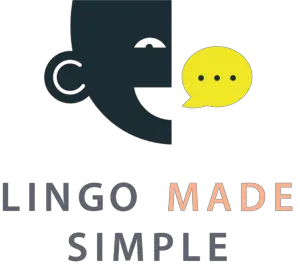The question to ask when you want to know something with a deeper understanding usually starts with “how” or “what” in the English language.
This structure is different from most European languages because they typically focus on “how” alone. That’s why it can be challenging to distinguish the difference between it and “what” when learning English.
Both choices will convey the appropriate point, but only one of them is considered grammatically correct when reviewing the circumstances within the conversation or writing.
When you can get this subtle different right, you’ll eliminate any confusion that exists when speaking to someone or publishing your writing.
Difference Between “What Is It Called?” and “How Is It Called?”
The difference between “what is it called” and “how is it called” depends on the question getting asked. When you ask about a method of speech, sound, or another specificity, it would be appropriate to use “how” in the expression. Everything else would use “what” for the query.
When you look at “what” or “how” in the English language, you’re considering two questions. Each one is useful for various purposes depending on what needs to get asked.
The primary difference between the two is that “how” gets used to understand how an event occurred. With “what,” you’re finding out something about a situation or noun – or its description.
The classic example of the differences between “what” and “how” involves a trip to the local market.
“What did you purchase during your trip to the market?”
As a response, the other person in that conversation might say they bought apples, bread, chicken, and clams.
“How did you carry all those items home with you?”
The other person might answer that question by saying that they had help loading the food into their vehicle. They could also say that they took the bus home, caught a taxi, or got a ride from a friend.
What Are the Key Points to Remember About “How?”
When you think about the word “how,” the expression ponders the manner or means of an event that happened.
This query gets expressed in several different ways. Here are a few examples where it would be appropriate to use this option for the phrasing.
- For What Reason: “How can you talk about things in that way?”
- To What Extent: “How damaged is your ankle after rolling it like that?”
- In What Condition: “How are you today?”
- At What Price: “How much did you really pay for that car with all the chip shortages?”
- By What Amount: “How do you sell potatoes for that amount?”
- By What Title: “How do I address the CEO of the company in the meeting today?”
- In What Shape: “How did the actor manage to appear like an angel on the stage?”
- By What Manner: “It doesn’t matter how you leave your desk when leaving.”
- Informally: “She said how she was honest because she took taekwondo lessons.”
- About the Manner: “She couldn’t determine how to figure out a solution to the issue.”
Although it is a relatively long list, it’s because the word “how” can have numerous meanings in the English language. It is helpful to discern or glean several information points in writing or during a conversation.
Most people use “how” to ask about a specific event, the extent it happened, or its overall condition.
- How much do you weigh now after getting lectured by your doctor?
- How tall is that guy playing the center position for the basketball team?
- How do we make this recipe better with the ingredients we have at home?
Although “what” is also a question, it is used more interrogatively or as a transition between two thoughts. We use it as an identifier.
Most sentences can substitute “how” with “what” in English, but “what” doesn’t always substitute for “how.” That’s why looking at the expression in both ways can help you determine which one to use when speaking or writing.
“How” and “What” Are Still Not the Most Abused Words in English
Although people often confuse the words “how” and “what” when asking questions, the word “like” is the most abused term that Americans include in their language. It is often included as filler, replacing terms like “uh” or “um” when stalling for time to complete a thought.
The Beatniks first popularized the word “like” in their 1950s song that told everyone it was a sign of being cool. It reached the mainstream language in the 1980s when another song, “Valley Girl,” became popular. Frank and Moon Zappa made it as a satirical piece, but it reflected the language from the area at the time.
“Valley Girl” was released in 1982, and it even got nominated for a Grammy. It would reach #32 on the Billboard charts.
If you hear someone say, “That event happened, like, maybe five years ago. Like, we’ve been friends for like, much longer than that.”
Those examples show how the word evolved into a stalling mechanism, but we can even look at a book like Kidnapped by Robert Louis Stevenson to see that we’ve been interacting with each other in the same way for more than a century.
In the book, the character Spook says, “Like, how should I know, Jazz? Like, he never tells me nothing.”
It’s a trope that we’ve incorporated into our language where it isn’t there when writing, but it is present when speaking with each other. That’s why you don’t see it in academic papers, while you do have it in fictional pieces.
The luxury of the English language is that you can substitute one word for another while conveying the meaning you want, even if it is grammatically incorrect.
When looking at the differences between “what is it called” and “how is it called,” you’d want to separate the manner or means with the latter option. Everything else falls into the first choice.


